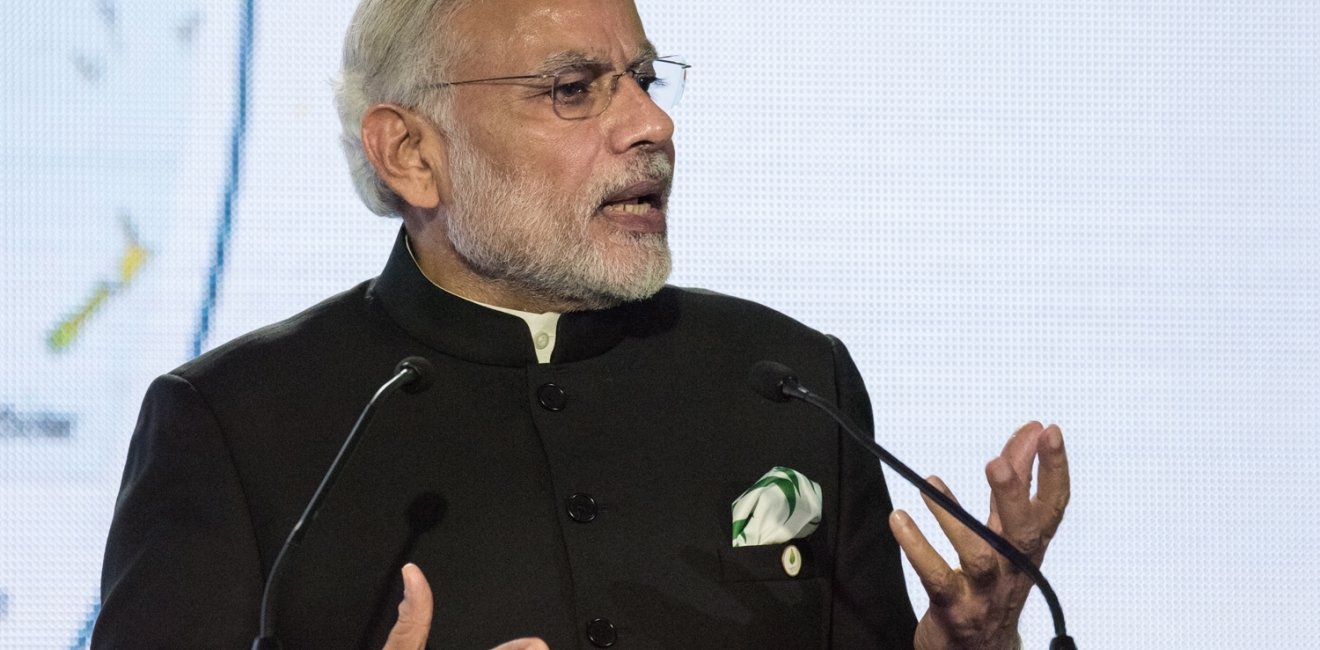As the world struggles to digest the stunning election victory of Donald Trump, there will be much hand-wringing in many capitals about how their relations with Washington could change in radical ways.
From Mexico and the Middle East to the NATO countries and America’s alliance partners in Asia, there will be very real concerns about future relationships with a leader whose foreign policy views suggest a strong desire to shake things up in the world in a very big way.
Trump’s election could lead to a revolution in Washington’s relations with the world. However, when it comes to India, there’s good reason to expect a continuation of the status quo: Continued efforts to strengthen and broaden a relationship that is going places, and fast.
India-U.S. - A Common Deterrent In China
Trump, we can assume, is perfectly comfortable with the long-standing fundamental drivers of U.S.-India cooperation—shared values of democracy, convergent interests oriented around combating terrorism and pushing back against China, and a 3-million-strong Indian-American diaspora that Trump courted on the campaign trail (even though recent surveys suggest it is no fan of the new president).
The ‘Great Man’ Modi
Additionally, there’s reason to believe Trump could build ample camaraderie with Indian premier Narendra Modi, whom Trump has referred to as a “great man.” The two share numerous similarities.
They revel in the pageantry of public life and enthusiastically embrace social media. They enjoy close ties to the business world and cater to conservative constituencies. They claim to be deeply nationalistic; slogans like “Make America Great Again” and “Make in India” convey a strikingly similar message of our-country-first patriotism.
Above all, Trump and Modi both regard themselves as tough-talking can-do reformers from outside the political establishment who are determined to alter a political status quo that their supporters view as wholly intolerable.
The Hurdles
To be sure, there could be problems for U.S.-India relations under President Trump. His ugly rhetoric about immigration and Muslims will not play well among many Indians and Indian-Americans—and it practically ensures that one of the core tensions points in bilateral relations, Washington’s H1B visa policies, will remain in place.
Additionally, Trump’s cryptic suggestion several weeks ago that he would be happy to serve as a mediator in the India-Pakistan dispute will not go down well in New Delhi should he renew this offer as president.
Additionally, Trump’s suggestion that he could re-examine U.S. relationships with broader Asia could be troublesome for U.S.-India relations. A decision in Washington to scale back alliances with military partners in Asia could hamper U.S.-India cooperation in the broader region. After all, if Washington is less present in Asia, then it will have fewer opportunities to cooperate there with India.
Reducing Presence In Afghanistan
Furthermore, should Trump decide to reduce the U.S. military footprint in Afghanistan—he has endorsed the current troop draw-down plan but warned he’s not interested in “nation-building,” which can be code for opposition to an open-ended military commitment—then there could be rocky consequences for India.
New Delhi benefits from U.S. boots on the ground in Afghanistan, and particularly as it seeks to deepen its role there—as evidenced by its decision some months ago to transfer fighter helicopters to Kabul.
Engaging India’s Political Class
More broadly, there are questions as to how deeply India’s political class will want to engage with a leader as controversial as Trump. Many will likely come around, though some may continue to shy away.
Additionally, given some of the unsavory things Trump said about Indians on the campaign trail (which infamously included making fun of call center employees), he may need to engage in some fence-mending with Indian officialdom to ensure he has their trust.
The Road Ahead
Still, despite all this, the pillars of U.S.-India cooperation should remain firmly in place under the Trump administration. Trump’s commitment to the bilateral relationship should prove as strong as that of his three predecessors, all of whom, in their own way, sought to deepen a partnership that in recent months has repeatedly been referred to as a ‘natural one.’
Indeed, expect President Trump to invoke that very phrase when he offers his first public statement on U.S.-India relations. Ultimately, it’s hard to know at this point what U.S. relations with the world will look like in the Trump years. But with India, we can expect some welcome continuity.
And that’s a reassuring thought at such an uncertain and unsettling moment in our history.
The opinions expressed here are solely those of the author.
This article was originally published in Bloomberg Quint.








